According to the new “International Property Rights Index” (IPRI) (executive summary here, full report here), published by the Property Rights Alliance, protection of property rights continues to decline globally, this year with 2.2% as compared to last year. It’s already the 15th time the index has been published.
The 2021 International Property Rights Index ranks property rights protections in 129 countries, covering 94% of the world population and 98% of global GDP. #IPRI2021https://t.co/dftA2BakSD pic.twitter.com/OR5udSYWRB
— PRA (@PRAlliance) November 30, 2021
The ranking includes 129 countries accounting for 93.91% of the world’s population and 97.73% of global GDP, and it measures how solid the protection is for property rights, categorizing them into rights relating to “Legal and Political Environment” (LP), “Physical Property Rights” (PPR) and “Intellectual Property Rights” (IPR). For all three categories, the scores have weakened as compared to 2020 and there is a clear downward trend for the last five years.
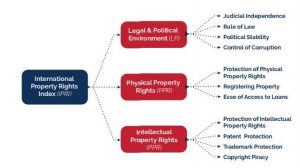

Switzerland is ranked at the number one spot, and Haita as the worst performer when it comes to property rights protection.
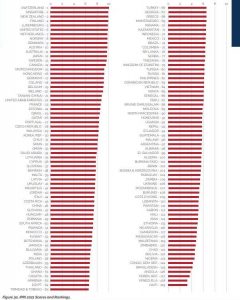
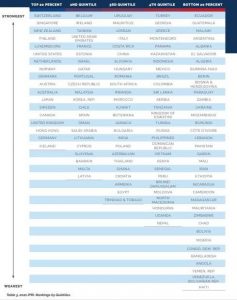
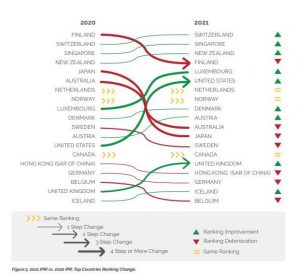

The introduction to the research paper presenting the new index is being delivered by renowned Peruvian economist Hernando de Soto, the author of the bestseller “The Mystery of Capital”, where he recalls that “most of the poor already possess the assets they need to make a success of capitalism” but “because the rights to these possessions are not adequately documented, these assets cannot readily be turned into capital”. In his introduction, de Soto stresses:
“This report reinforces the principle that property rights positively correlate to overall quality of life and economic strength. (…)Today, only about 1 billion of the 7.8 billion people in the world have rights to their tangible and intangible assets. This year’s edition includes a calculation and analysis of IPRI-Gender Equality (GE) to draw attention to the discrepancy of property rights among women. (…)
These rights are also important in promoting the rule of law, low government corruption, political stability, and an independent judiciary. With COVID-19 necessitating frequent government response, it is increasingly important to defend property rights in the face of overreach on individual liberties.”
As global intellectual property rights protection witnessed the highest decrease, with 5.4% as compared to last year, de Soto warns:
“The weakening of IP proposed in the TRIPS waiver to the WTO is dangerous since it threatens the quality assurance process of vaccines and opens the door for criminal syndicates to manufacture and sell counterfeit versions of COVID-19 related medical products at increased rates.”
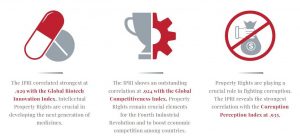
“The United States jumped seven spots from last year to rank 6th for 2021 IPRI, while continuing to have a notable lead on the IPR component.”
Read the 2021 International Property Rights Index here: https://t.co/dftA2BakSD pic.twitter.com/wQO2Ag1Q3b
— PRA (@PRAlliance) November 30, 2021
"The legal protection of the innovation that delivered Covid vaccines is under threat"
New article, by @pietercleppe:https://t.co/k0e5M7jdjG#IP #vaccines #EU #Biden #WorldIPDay #WorldIPDAy2021 #TRIPSwaiver #Covid @PRAlliance— BrusselsReport.EU (@brussels_report) April 26, 2021
The index also includes a comparison between regions, listing Oceania and North America” ahead of the European Union in terms of property rights protection. These regions are followed by Asia, “Rest of Europe” and South America respectively, whereas property rights protection remains weakest in Africa.
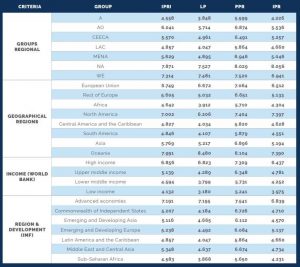

A number of case studies are furthermore mentioned in the publication as well, with academics recommending for Spain that “liberalization of the planning process and land action would increase land supply and reduce its high costs and transformation schedules.”













